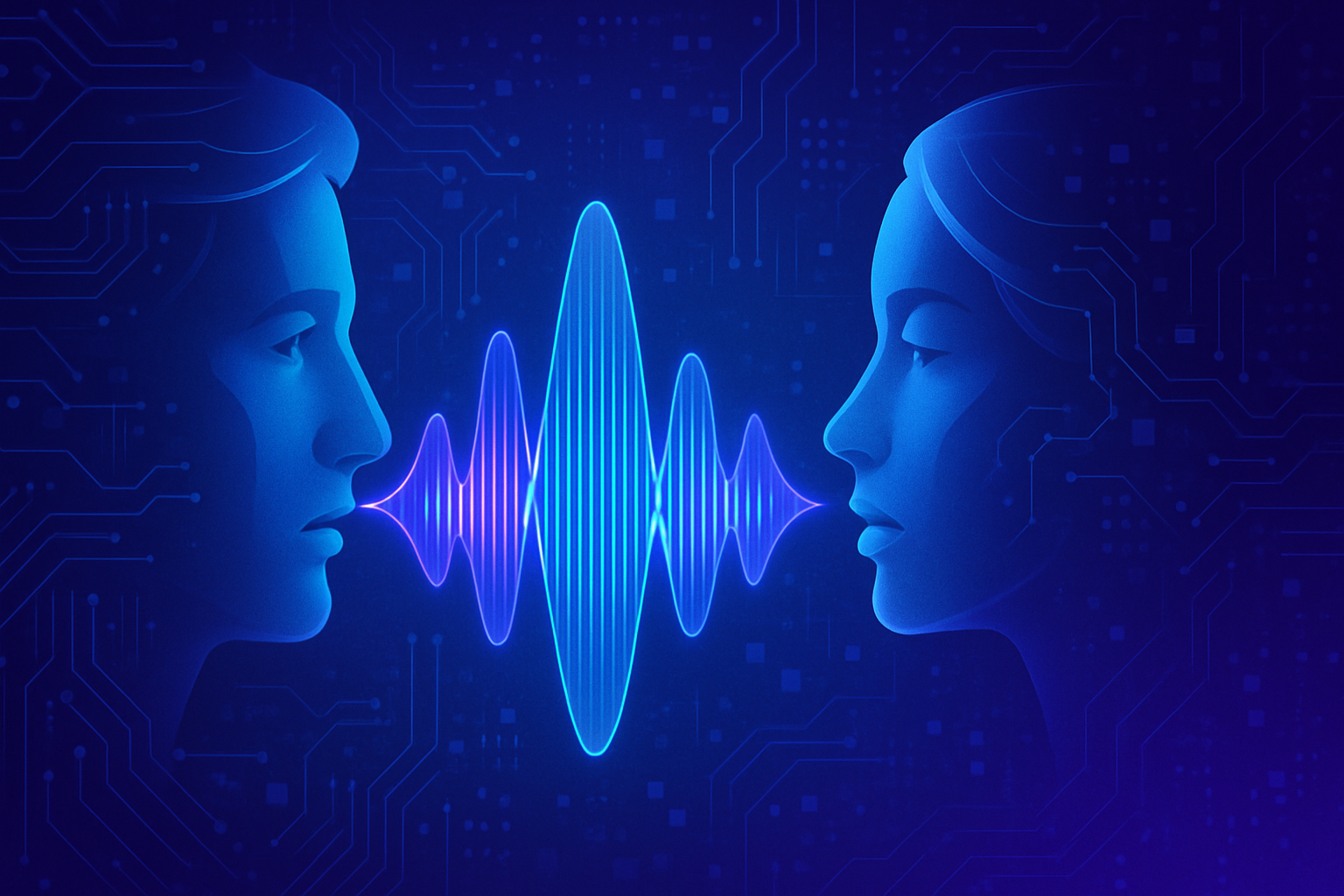Speech synthesis technology is experiencing rapid advancements, making AI-generated voices indistinguishable from real human voices. The implications of this phenomenon raise significant ethical and societal issues. With voice clones now accessible, the line between real and synthetic voices is becoming strikingly blurred.
Current AI tools allow for the production of speech that appears *practically authentic*, redefining communication norms. The question of *trust in these synthetic voices* emerges as a crucial topic for debate. The opportunity to enhance accessibility and education with custom voices nonetheless requires a *thorough ethical reflection* on the issues related to safety and misinformation.
AI-generated voices indistinguishable
Recent research conducted by Queen Mary University of London has revealed that AI speech synthesis technology has reached a remarkable level of sophistication. The results indicate that “cloned voices” or deepfakes generated by AI now appear as realistic as human recordings.
Evaluation of voices
Researchers compared authentic human voices to two categories of synthetic voices produced using advanced speech synthesis tools. Part of the voices was cloned from recordings of real humans, while the other was generated from a large voice model, without reference to a specific individual.
Participants were asked to evaluate the realism, dominance, and trustworthiness of the voices. The results show that AI-generated voices had surprising realism, making it difficult to distinguish them from human voices.
Ethical considerations
Dr. Nadine Lavan, co-author of the study and senior lecturer in psychology, emphasized the omnipresence of AI-generated voices. Voice assistant systems like Alexa or Siri do not perfectly mimic human voices. However, the rapid evolution of this technology makes the production of naturally sounding speech conceivable.
The ability to generate realistic voices at scale raises complex ethical questions. Ethical challenges include issues of copyright and safety, particularly in the areas of misinformation, fraud, and identity theft.
Potential applications
Despite these concerns, the opportunities presented by this technology are exciting. Applications in accessibility, education, and communication could emerge. High-quality synthetic voices could greatly enhance the user experience, creating more inclusive and interactive interfaces.
Conclusion on the speed of advancements
The rapid improvement of speech synthesis tools is a testament to the growing sophistication of this technology. According to Dr. Lavan, it only took a few minutes of voice recordings and relatively accessible commercial software to design voice clones. This increased ease in developing generated voices calls for heightened vigilance against possible abuses.
In this constantly evolving context, understanding how these realistic voices influence societal perceptions is essential. The implications for how we interact with technologies and with each other need to be seriously considered.
AI-generated voices raise questions that touch on ethics and public trust. The future challenges and benefits could radically redefine our relationship with voice technology, as illustrated by sources such as actu.ai.
To delve deeper into the subject, additional resources such as advancements in AI in dubbing and other voice creation tools can be consulted at actu.ai.
Frequently asked questions
What are the main applications of AI-generated voices?
AI-generated voices are used in various fields, including virtual assistants, automated customer service, accessibility for the hearing-impaired, online education, and in video games to create more realistic characters.
How can I be sure that the AI-generated voice is realistic?
Research has shown that AI-generated voices can be perceived as just as realistic as human voices. Perception studies have revealed that users often struggle to differentiate between these synthetic voices and human recordings.
What are the ethical risks associated with AI-generated voices?
The ability to create realistic voices raises ethical questions regarding misinformation, fraud, and identity theft. The malicious use of these technologies could potentially deceive people into believing they are interacting with real individuals.
Can AI-generated voices be used for accessibility purposes?
Yes, these voices can improve accessibility for individuals with hearing or communication difficulties. For example, high-quality synthetic voices can help create interactive and accessible learning tools.
What type of technology is used to create AI-generated voices?
AI-generated voices are created using advanced speech synthesis tools that employ machine learning models to analyze and reproduce human vocal characteristics.
How are AI-generated voices developing in terms of quality?
The quality of AI-generated voices has significantly evolved due to improvements in deep learning algorithms and increased training data, allowing for the capacity to produce synthetic voices that truly sound human.
What are the differences between cloned voices and AI-generated voices without a human model?
Cloned voices specifically imitate a real person, whereas those generated by AI without a human model are created from a vast dataset of voice samples and are not affiliated with a specific human voice. This leads to differences in personality and vocal character.
Can AI-generated voices be used in new media, such as films or video games?
Absolutely, AI-generated voices are increasingly integrated into the entertainment industry to bring characters to life without requiring the physical presence of actors, allowing for greater flexibility and creativity.
Are there security concerns related to the use of AI-generated voices?
Yes, there are security concerns, particularly regarding their use to create false information or fraudulent calls. Companies and regulators need to implement measures to prevent abuses related to this technology.






